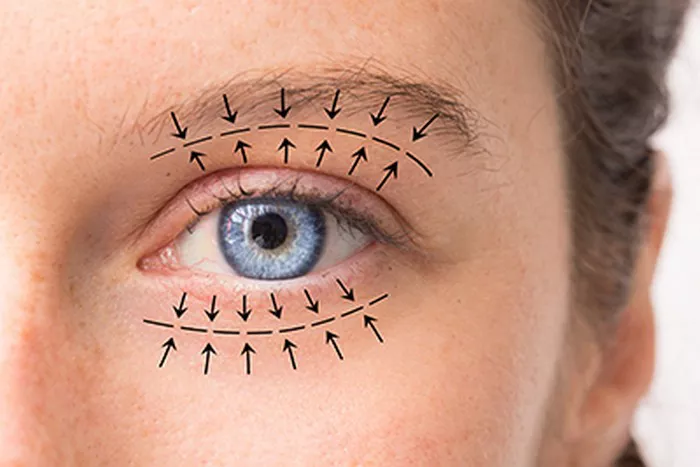Eyelid surgery, medically known as blepharoplasty, is a cosmetic procedure that aims to enhance the appearance of the eyelids by removing excess skin, fat, and muscle. While its primary purpose is cosmetic, many people wonder whether eyelid surgery can also improve vision. This article will delve into the relationship between eyelid surgery and vision, providing insights into the potential benefits and considerations for those considering this procedure.
Understanding Eyelid Anatomy
Before we explore the impact of eyelid surgery on vision, it’s essential to grasp the basic anatomy of the eyelids. The eyelids serve multiple functions, including protecting the eyes from dust, debris, and foreign objects, distributing tears to keep the eyes moist, and, to some extent, contributing to visual clarity.
Each eyelid consists of layers of skin, muscle, and connective tissue, all of which play a role in maintaining the eyelids’ structure and function. Over time, these tissues can lose their elasticity and begin to sag, leading to cosmetic concerns and, potentially, vision-related issues.
Cosmetic vs. Functional Eyelid Surgery
Eyelid surgery is primarily performed for cosmetic reasons, addressing issues like droopy eyelids, bags under the eyes, and excessive wrinkles. However, in some cases, functional blepharoplasty may be necessary to correct vision-related problems caused by eyelid abnormalities.
Functional eyelid surgery is generally indicated when:
Peripheral Vision Obstruction: Excess upper eyelid skin can obstruct a person’s peripheral vision, limiting their ability to see objects from the side. In such cases, the removal of excess skin can restore full peripheral vision.
Ptosis (Drooping Eyelids): Ptosis, or drooping of the upper eyelids, can interfere with a person’s line of sight, making it necessary to lift the eyelids surgically to improve vision.
Ectropion and Entropion: Ectropion (outward turning of the eyelids) and entropion (inward turning of the eyelids) can cause discomfort and irritation, affecting vision. Surgery may be required to correct these conditions and improve eye function.
Potential Vision Improvement After Eyelid Surgery
When eyelid surgery is performed to address functional issues, patients can experience improvements in their vision. These improvements may include:
Enhanced Peripheral Vision: Removing excess upper eyelid skin can widen the field of vision, allowing patients to see objects more clearly from the sides.
Increased Lid Support: Functional blepharoplasty can correct drooping eyelids, providing better support to the eyes and improving overall vision.
Relief from Irritation: Patients with ectropion or entropion may find that surgery alleviates irritation and discomfort, allowing them to see more comfortably.
Considerations and Precautions
While eyelid surgery can potentially improve vision in cases of functional issues, it’s crucial to approach the procedure with realistic expectations and consider some essential factors:
Consultation: Consult with a qualified ophthalmologist or plastic surgeon to determine whether your vision concerns can be addressed through eyelid surgery.
Cosmetic vs. Functional: Understand the distinction between cosmetic and functional eyelid surgery, as the goals and outcomes differ.
Risks and Complications: Like any surgical procedure, eyelid surgery carries some risks and potential complications. Discuss these with your surgeon during the consultation.
Recovery Time: Recovery from eyelid surgery can take several weeks. Be prepared for post-operative care and downtime.
Long-Term Benefits: Functional improvements in vision should be considered as valuable benefits, but the primary purpose of eyelid surgery remains cosmetic enhancement.
Conclusion
Eyelid surgery, or blepharoplasty, primarily serves cosmetic purposes by addressing issues related to the appearance of the eyelids. However, in some cases, functional eyelid surgery may be necessary to improve vision by correcting conditions like ptosis, ectropion, or entropion.
If you are considering eyelid surgery to address vision-related issues, consult with a qualified medical professional who can assess your condition and recommend the most appropriate course of action. While eyelid surgery can lead to vision improvements in some cases, it is essential to have realistic expectations and prioritize your eye health and safety throughout the process.


